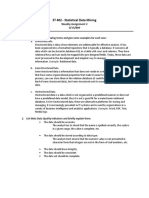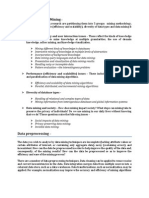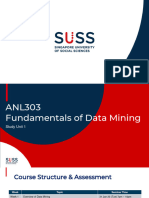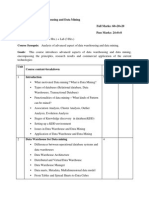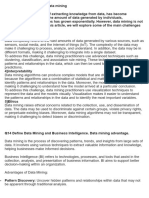0% found this document useful (0 votes)
27 views2 pagesFDM 2024 Assignment II
The document outlines an assignment for a Higher Diploma in Data Science focusing on various aspects of data mining, including the importance of data preprocessing, comparison of mining techniques, challenges with different data types, evaluation metrics, and ethical considerations. Each section includes specific questions and objectives aimed at enhancing understanding of these critical topics. The assignment is structured for group work, emphasizing collaborative learning and practical application of data mining concepts.
Uploaded by
jkusekwa01Copyright
© © All Rights Reserved
We take content rights seriously. If you suspect this is your content, claim it here.
Available Formats
Download as PDF, TXT or read online on Scribd
0% found this document useful (0 votes)
27 views2 pagesFDM 2024 Assignment II
The document outlines an assignment for a Higher Diploma in Data Science focusing on various aspects of data mining, including the importance of data preprocessing, comparison of mining techniques, challenges with different data types, evaluation metrics, and ethical considerations. Each section includes specific questions and objectives aimed at enhancing understanding of these critical topics. The assignment is structured for group work, emphasizing collaborative learning and practical application of data mining concepts.
Uploaded by
jkusekwa01Copyright
© © All Rights Reserved
We take content rights seriously. If you suspect this is your content, claim it here.
Available Formats
Download as PDF, TXT or read online on Scribd
/ 2

















